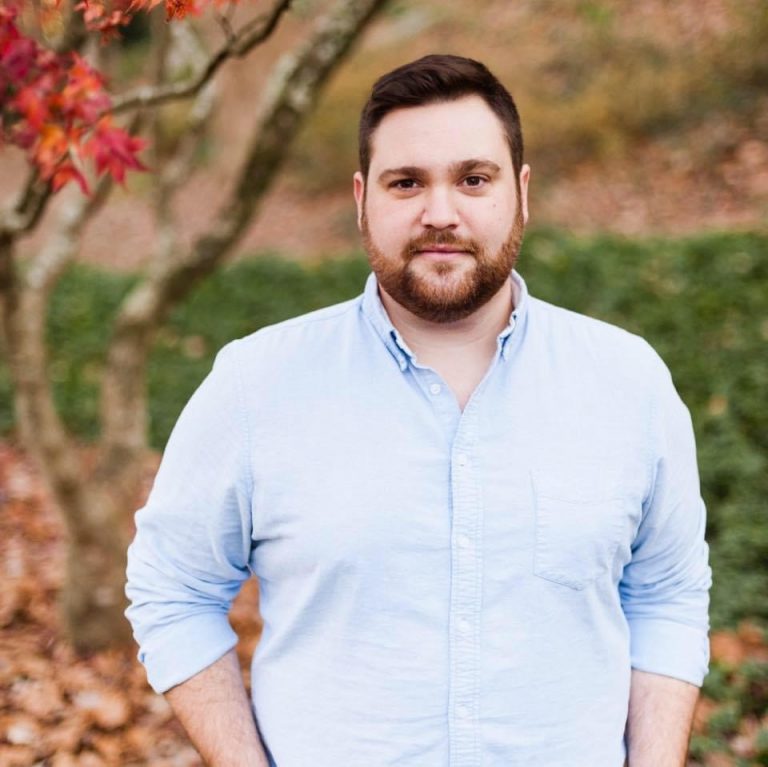“Start Here, Impact the World” is Asbury University’s tagline, but how exactly are alumni impacting the world, especially in these unprecedented times? For James Torell ’11, it’s being on the front lines of the COVID-19 pandemic.
Torell, a former Trustees Hall resident, Georgia native and current Atlanta resident along with his fiancée, is a physician’s assistant at one of Atlanta’s largest hospitals, Piedmont Atlanta Hospital. Torell received his EMT directly after graduating Asbury University and, after traveling to West Africa, Kurdistan and Indonesia on medical relief trips, went to the Medical College of Georgia.
For the past several months, Torell has worked on the front lines of Atlanta’s COVID-19 crisis in Piedmont’s intensive care unit. At its peak, Torell reports that Piedmont Atlanta had about 90 patients with COVID. Currently, Torell said that there are now about three to four cases in his ICU unit.
“Back in March, we didn’t really understand what COVID was going to be like,” said Torell. “We knew what Italy was like, we knew what Spain was like, we knew what Wuhan was like, but we were getting ready for this wave of a pandemic to hit and we didn’t know anything about what it looked like here or how to treat it. Going through that process and waiting for this tidal wave to hit was one of the scariest parts.”
Like many other hospitals during the first few months of the pandemic, so little was known about the virus that it took a learning curve for healthcare professionals to know what to do.
“Typically, you’d admit someone to the regular floor—not the ICU—a 55-year-old, mildly obese man with high blood pressure and diabetes, and within four or five hours of being admitted, I’d get a call from the nurse saying that his oxygen levels are like 82%,” said Torell. “We were just getting crushed by those calls because COVID hits you so fast. Now we can test patients way faster so we can get them started on convalescent plasma. We were trying all sorts of things at that time. Slowly, we started understanding what was happening.”
For Torell, the most difficult part of working in the ICU during the pandemic was watching patients die alone.
“You can’t have any visitors in the hospital,” said Torell, “[You] are not supposed to die by yourself… the idea of someone dying without someone holding their hand is really hard. Zoom became a thing and we started using our own phones to FaceTime their families, and then we developed an iPad system. There were a few days when I was the only person in the room—because you don’t want to load up a room when someone has really bad COVID—and these people would go through two or three weeks of total isolation. Anyone who came into those rooms was wearing, like, a space suit, and so they’d gone for weeks without physical touch or interaction with anyone who knows them or loves them. It was hard when it comes to the end and they’re dying and the family is Zooming with them to say goodbye. You’d just hold their hand so they wouldn’t be alone, and the family would just keep saying, ‘Please don’t let them be alone.’ Those were the hardest days for me.”
However difficult those days were, Torell also said he saw many reconciliations as family members breathed their last after long and difficult battles with the virus.
“There were crazy things that happened,” said Torell, “kids that had never reconciled things with parents—I’d be sitting there holding the phone—as they were saying, like, ‘Dad, I forgive you.’ I’m around death a lot, but being in that scenario was crazy.”
In addition to the first wave of the virus, the beginning of June saw a huge spike in cases, according to Torell.
“We had almost emptied out our ICU,” said Torell, “I was running the COVID unit—and it calmed down—and then we just got obliterated again in late June and early July.”
Despite being on the tail end of summer’s COVID wave, Torell believes that COVID-19 will continue to wane in its severity in the coming months. With doctors and hospital systems that now understand the way the virus unfolds, Torell is certain we won’t see another wave like the one in March.
“It’s not going to stick around for the rest of our lives—that’s why we have vaccines,” said Torell. “Like if you look at the things you get immunization for—like diphtheria or polio—these things used to demolish people, and now they’re gone. And that’s because we’ve developed immunity to them…there won’t be a hospital system-overwhelming spike like there was before I don’t think.”
Moving forward, Torell believes that traveling will look a lot different for the remainder of the pandemic.
“Travel restrictions are going to start changing. I think there’s probably going to be kiosks everywhere for you to get tested rapidly.”
As the pandemic continues, Torell believes that taking precautions such as wearing masks and staying socially distant are adequate while trying to keep life as normal as possible.
“I think we’re doing our best,” said Torell. “I get a little bit frustrated that mask-wearing has become a political thing, no matter what side of the fence you swing on. The fact it’s gotten to this point is ridiculous, but we as a society are trying to make sense of a thing we’ve never had before. We’ve never been through a pandemic with social media during an election year.”



